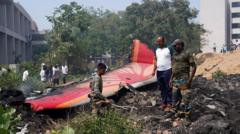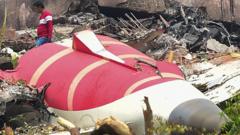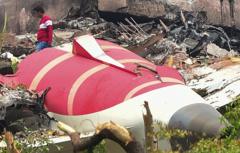As cities like Ahmedabad expand, the urgent need for sustainable urban planning is underscored by aviation accidents linked to densely populated areas near busy airports.
Urban Development and Aviation Safety: The Growing Risks Around India’s Airports

Urban Development and Aviation Safety: The Growing Risks Around India’s Airports
The recent Air India crash highlights the risks posed by urban overcrowding around airports in response to rising air travel.
In June 2025, a shocking incident unfolded in Ahmedabad, India, as an Air India flight tragically crashed into a medical college campus, resulting in the loss of 241 lives aboard and at least 34 on the ground. The disaster shed light on a critical issue faced by urban centers across India, where booming airport traffic pressures infrastructure already strained by rapid population growth.
Residents, like Bhavesh Patni, who witnessed the fire from his home nearby, are all too aware of the precariousness of living in close proximity to busy airports. With air passenger traffic doubling in the last decade, the lack of sufficient buffer zones between residential neighborhoods and these crucial transport hubs threatens the safety of countless families during takeoffs and landings—the most vulnerable phases of air travel.
India's ambition to elevate air travel is commendable but precarious without paramount attention to urban planning and infrastructure development. Cities, which now house over 1.4 billion people, are struggling to accommodate the soaring demands from expanding aviation needs. Experts call for immediate investments in smarter and more sustainable urban designs to decrease risks, ensuring safety doesn’t take a backseat to rapid economic progress.
The juxtaposition of aviation growth and urban infrastructure demands raises important questions about the future of air travel in densely populated areas. Without strategic redevelopment and environmental considerations, cities may very well find themselves enmeshed in an unavoidable cycle of tragedy that demands urgent intervention for sustainable futures.























